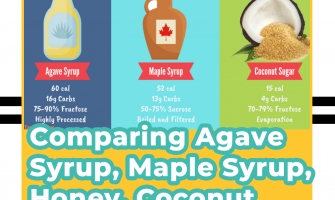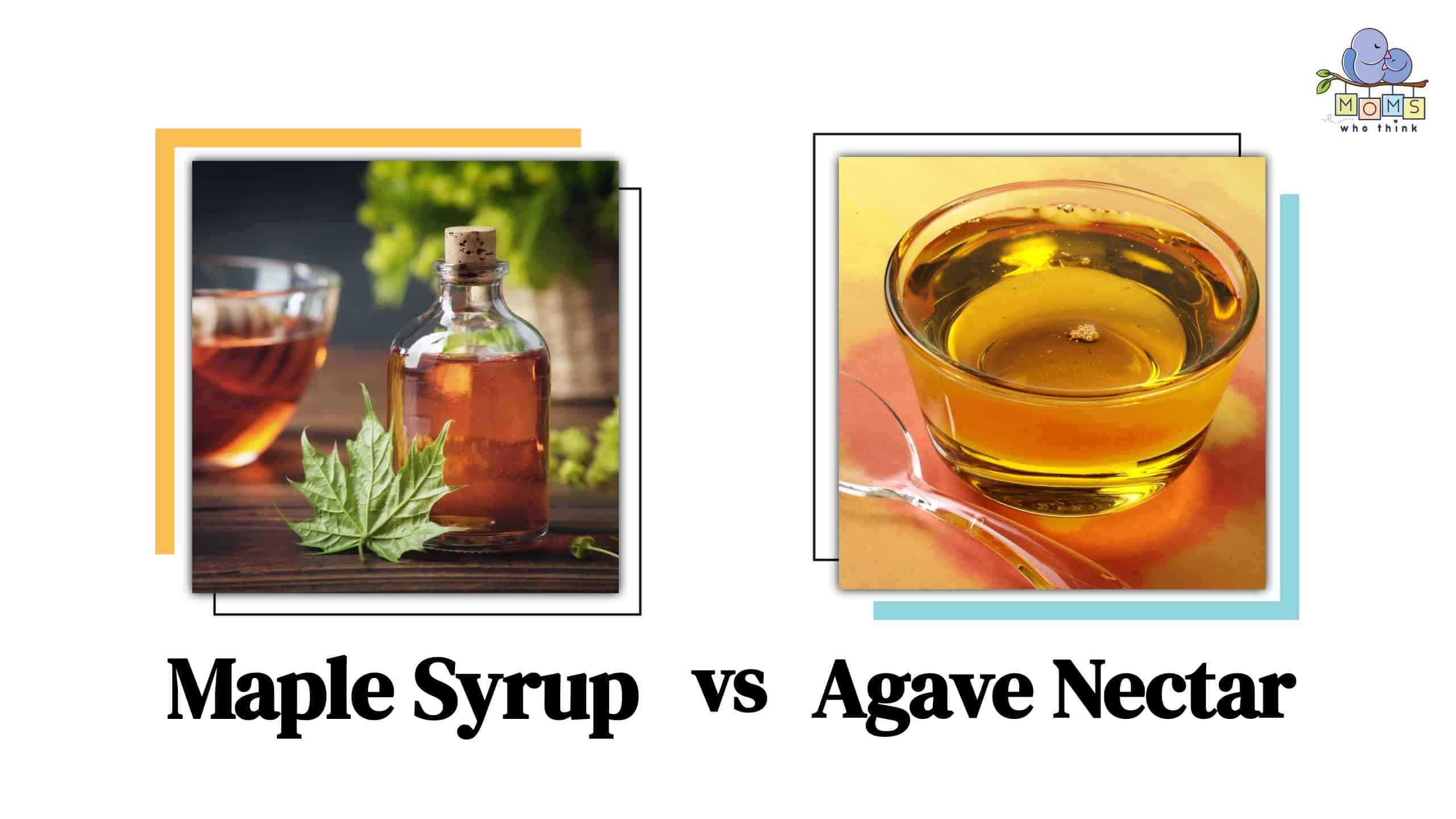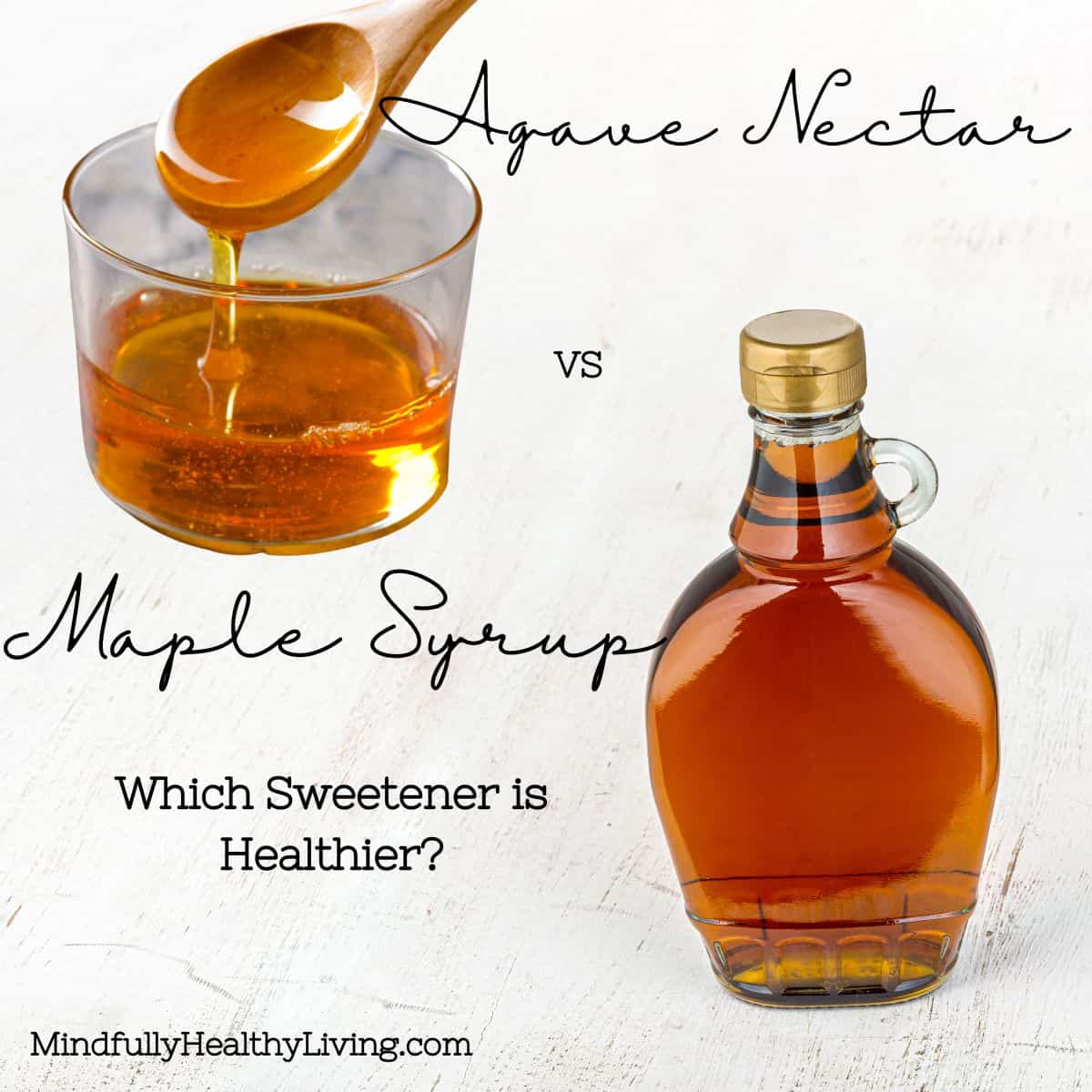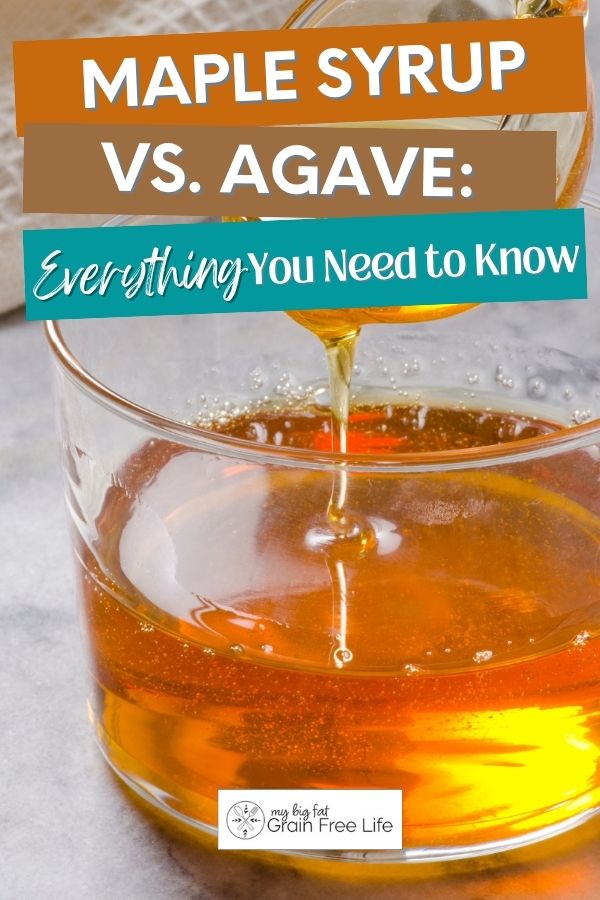Maple Syrup: Overview And Nutritional Value

Maple syrup is a natural sweetener made from the sap of maple trees. It is commonly used to add flavor and sweetness to various dishes and beverages. Maple syrup is rich in essential nutrients, including manganese, riboflavin, zinc, and calcium. It also contains antioxidants that help combat free radicals in the body. However, it is important to note that maple syrup is still high in sugar and should be consumed in moderation. Its distinctive taste and versatility in cooking make it a popular choice for many people.
1 Maple Syrup: Production And Types
Maple syrup is produced through a process known as sugaring, which involves tapping maple trees and collecting the sap. The sap is then boiled down to remove the water content, resulting in a concentrated syrup. The production of maple syrup varies depending on the region, with different grading systems used to classify the syrup based on its color and flavor profile. The two most common types of maple syrup are Grade A and Grade B. Grade A maple syrup is lighter in color and has a milder flavor, while Grade B syrup is darker and has a stronger, more robust taste. Additionally, there are specialty maple syrups, such as amber and dark syrups, which have distinct flavor characteristics. Overall, the production and types of maple syrup offer a range of options for consumers to choose from based on their personal preferences.
2 Maple Syrup: Nutritional Facts And Health Benefits
Maple syrup is not only a delicious sweetener but also provides some nutritional benefits. It is a good source of antioxidants, which help protect the body from damage caused by free radicals. It contains essential minerals like manganese, which is important for bone health and energy metabolism. Maple syrup also contains small amounts of vitamins like riboflavin and zinc. However, it is important to note that maple syrup is still a form of sugar and should be consumed in moderation. Excessive consumption can contribute to weight gain and increase the risk of developing chronic diseases.
Agave: Understanding The Sweetener

Agave is a natural sweetener derived from the juice of the agave plant. It is often marketed as a healthier alternative to refined sugar due to its low glycemic index. Agave syrup is produced by extracting the sap from the core of the agave plant and then heating and filtering it to create a sweet, syrup-like substance. This sweetener is known for its mild, honey-like flavor and is commonly used in baking, cooking, and as a sweetener in beverages. However, it is important to note that agave syrup is still a form of sugar and should be consumed in moderation to avoid excessive calorie intake and potential adverse health effects.
1 Agave: Source And Processing
Agave is sourced from the succulent plants of the Agave genus, primarily the Agave tequilana plant. These plants are native to Mexico and are cultivated for their sweet sap, which is the basis for agave syrup production. The process begins by extracting the sap from the core of the plant by crushing and pressing it. The sap is then filtered and heated at low temperatures to break down complex carbohydrates into simple sugars. Finally, it is concentrated and transformed into the syrup-like consistency of agave sweetener.
2 Agave: Glycemic Index And Health Implications
Agave syrup is often marketed as a healthier alternative to traditional sweeteners due to its low glycemic index of 30. However, it’s important to consider the high fructose content of agave. While fructose doesn’t cause an immediate spike in blood sugar like glucose does, it can have negative health implications when consumed in excess. Excessive consumption of fructose has been linked to weight gain, insulin resistance, and increased risk of metabolic disorders. Therefore, while agave syrup may seem like a healthier option, moderation is key to avoid potential health risks.
Flavor Profile Of Maple Syrup Vs Agave

Maple syrup and agave syrup have distinct flavor profiles that can complement different dishes.
- Maple syrup offers a rich, robust, and sweet taste with hints of caramel and woodsy undertones. Its flavor is often described as warm and comforting, making it a popular choice for breakfast foods like pancakes and waffles. It also pairs well with savory dishes like roasted vegetables and marinades.
- On the other hand, agave syrup has a lighter, milder flavor with floral notes. Its taste is often compared to honey but with a hint of vanilla. Agave syrup’s subtle sweetness makes it a versatile sweetener that can be used in a variety of recipes, from beverages like cocktails and iced teas to salad dressings and baked goods.
Both maple syrup and agave syrup contribute unique flavors to dishes, allowing for creative experimentation in the kitchen.
1 Maple Syrup: Taste And Culinary Uses
Maple syrup is renowned for its rich and distinct taste, making it a beloved ingredient in various culinary applications. Its sweet and robust flavor carries hints of caramel and woodsy undertones, adding depth to dishes. In the culinary world, maple syrup is primarily used as a sweetener for breakfast foods like pancakes, waffles, and French toast. However, its versatility extends beyond breakfast, as it can also enhance the flavors of savory dishes such as roasted vegetables and marinades. Chefs often incorporate maple syrup into glazes, sauces, and dressings to add a touch of warmth and complexity to their creations.
2 Agave: Flavor Profile And Culinary Applications
Agave nectar has a mild and neutral flavor profile, with a taste similar to honey but without the floral undertones. Its subtle sweetness makes it a versatile ingredient in a variety of recipes. Agave nectar is commonly used as a sweetener in beverages such as cocktails, smoothies, and iced tea. It can also be drizzled over desserts like ice cream or used in baking as a substitute for granulated sugar. Its liquid form makes it easy to incorporate into dressings, marinades, and sauces. Agave nectar is especially popular in vegan and raw food recipes due to its natural and plant-based properties.
Usage And Substitution In Recipes

Maple syrup and agave can be used interchangeably in many recipes that require a sweetener. However, it’s important to consider their differences in sweetness. Agave nectar is less sweet than maple syrup, so you may need to use more agave to achieve the desired level of sweetness. In baking, maple syrup can be substituted for agave in a 1:1 ratio, but you may need to slightly reduce the amount of liquid in the recipe. Agave nectar is a liquid sweetener, making it easier to incorporate into dressings, marinades, and sauces. When substituting agave for maple syrup, use 3/4 cup agave for every 1 cup of maple syrup. [:source]
1 Maple Syrup: Cooking And Baking Applications
Maple syrup is a versatile sweetener that adds a unique flavor to a variety of dishes. In cooking, it can be used as a glaze for roasted vegetables, a marinade for meats, or a sweetener in sauces and dressings. When it comes to baking, maple syrup can be used as a substitute for sugar in many recipes. It adds moisture and a rich, caramel-like taste to baked goods like cookies, breads, and pancakes. Additionally, maple syrup can be drizzled over desserts like ice cream or used as a topping for waffles or French toast. Its distinct flavor enhances both sweet and savory dishes, making it a go-to ingredient for chefs and home cooks alike.
2 Agave: Recipe Substitution And Cooking Tips
When it comes to using agave syrup as a substitute in recipes, there are a few things to consider. Agave syrup is sweeter than regular sugar, so when substituting it for sugar, you will need to use less. As a general rule of thumb, you can use 2/3 cup of agave syrup for every cup of sugar. When using agave syrup in baking, it is important to reduce the other liquid ingredients in the recipe by 1/4 cup to account for the added moisture from the syrup. Additionally, agave syrup can be used as a replacement for honey in recipes. Its mild flavor works well in salad dressings, sauces, and marinades. Remember that agave syrup may cause baked goods to brown more quickly, so it is important to monitor your cooking time closely. Overall, agave syrup is a versatile sweetener that can be used in a variety of recipes with a few adjustments.
Health Considerations And Impact On Blood Sugar

It is important to consider the impact of sweeteners on our health, particularly their effect on blood sugar levels. Maple syrup, with a glycemic index of 54, falls under the category of medium glycemic index foods. On the other hand, agave nectar has a glycemic index of 30, considered to be low. However, it is crucial to note that agave nectar has a high concentration of fructose, making it one of the sweeteners with the highest fructose content in the market. High fructose intake has been linked to insulin resistance and increased risk of metabolic disorders. Therefore, moderation is key when consuming either of these sweeteners to maintain stable blood sugar levels.
1 Maple Syrup: Health Effects And Consumption Guidelines
Maple syrup offers some health benefits due to its nutrient content, including antioxidants and minerals like manganese and zinc. However, it is still important to consume it in moderation. While maple syrup is a natural sweetener, it is still high in sugar and calories, so excessive consumption can contribute to weight gain and blood sugar spikes. The American Heart Association recommends limiting added sugar intake to no more than 9 teaspoons for men and 6 teaspoons for women per day, including maple syrup. To keep blood sugar levels stable, it is best to pair maple syrup with protein, fiber, or healthy fats.
2 Agave: Sugar Content And Diabetes Management
Agave syrup is often marketed as a healthier alternative for individuals with diabetes due to its low glycemic index. It is primarily composed of fructose, which has a minimal impact on blood sugar levels. However, it is important to note that agave syrup still contains a high amount of sugar. While it may not cause immediate blood sugar spikes, excessive consumption can still contribute to long-term health complications for individuals with diabetes. It is advisable for individuals with diabetes to limit their overall sugar intake and consult with their healthcare provider to determine the best sweetening options for their specific needs.
Conclusion

In conclusion, when comparing maple syrup and agave as sweetening agents, it is important to consider their nutritional value, flavor profiles, and impact on health. Maple syrup offers a rich taste and a variety of culinary uses, while agave has a milder flavor and is popular among individuals with diabetes due to its low glycemic index. However, both sweeteners still contain high amounts of sugar and should be consumed in moderation. Ultimately, the choice between maple syrup and agave depends on personal preference and dietary needs. Consult with a healthcare provider for guidance on incorporating these sweeteners into your diet.
1 Maple Syrup Vs Agave: Key Differences And Similarities
Maple Syrup and Agave are both popular natural sweeteners, but they have some key differences and similarities.
One major difference is their source. Maple syrup is derived from the sap of maple trees, while agave syrup comes from the agave plant.
In terms of taste, maple syrup has a rich and distinct flavor, while agave syrup has a milder and more neutral taste.
Both sweeteners have similar nutritional profiles, containing calories and carbohydrates. However, maple syrup also provides small amounts of minerals like calcium and iron.
When it comes to health impact, maple syrup has a moderate glycemic index, while agave syrup has a lower glycemic index, making it a better option for individuals with diabetes.
In conclusion, while both sweeteners offer a sweet taste, they differ in flavor, source, and glycemic index, allowing individuals to choose based on personal preference and dietary needs.
2 Making Informed Choices: Which Sweetener To Choose
When it comes to choosing between maple syrup and agave as sweeteners, it ultimately boils down to personal preference and health goals. Maple syrup offers a rich flavor and contains small amounts of minerals, making it a good choice for those looking for a natural and nutrient-dense option. On the other hand, agave syrup has a milder taste and a lower glycemic index, making it suitable for individuals with diabetes or those watching their blood sugar levels. Consider your taste preferences, nutritional needs, and health considerations to make an informed decision on which sweetener to choose.
FAQ About Maple Syrup Vs Agave: Sweetening Agents Compared
Q: What is the main difference between Maple Syrup and Agave as sweetening agents?
A: The main difference lies in their sources – Maple Syrup is derived from the sap of sugar maple trees, while Agave is made from the succulent plant known as the Agave plant.
Q: Which sweetener is healthier – Maple Syrup or Agave?
A: In terms of health benefits, both Maple Syrup and Agave have their own advantages. Maple Syrup is rich in minerals like manganese and zinc, while Agave is often preferred by those monitoring their blood sugar levels due to its low glycemic index.
Q: Are Maple Syrup and Agave suitable for vegans?
A: Yes, both Maple Syrup and Agave are plant-based sweeteners and are suitable for vegans and vegetarians.
Q: Can Maple Syrup be used as a substitute for Agave and vice versa in recipes?
A: Yes, Maple Syrup and Agave can often be used interchangeably in recipes, but it’s important to consider their distinct flavors and sweetness levels when substituting one for the other.
Q: Do Maple Syrup and Agave differ in terms of flavor profiles?
A: Yes, Maple Syrup has a rich, robust flavor with hints of caramel and woodsy notes, while Agave has a milder and more neutral taste.
Q: Are there any environmental sustainability factors to consider between Maple Syrup and Agave production?
A: Maple Syrup production is typically more sustainable as it involves tapping trees without harming them directly, whereas Agave farming can sometimes raise concerns about water usage and monocropping practices.

Hot Pot Chinese Restaurant, located in Mechanicsville, MD 20659, is a culinary destination that offers a delightful array of Chinese cuisine. From the cozy ambiance to the delectable dishes, Hot Pot Chinese Restaurant is dedicated to providing an exceptional dining experience for all patrons. Since our establishment, Hot Pot Chinese Restaurant has been committed to serving the finest Chinese food, offering a diverse menu that caters to a wide range of tastes. Whether you’re craving traditional favorites like Kung Pao Chicken and Mongolian Beef or seeking out more adventurous options like Szechuan Spicy Hot Pot, our menu has something to satisfy every craving.